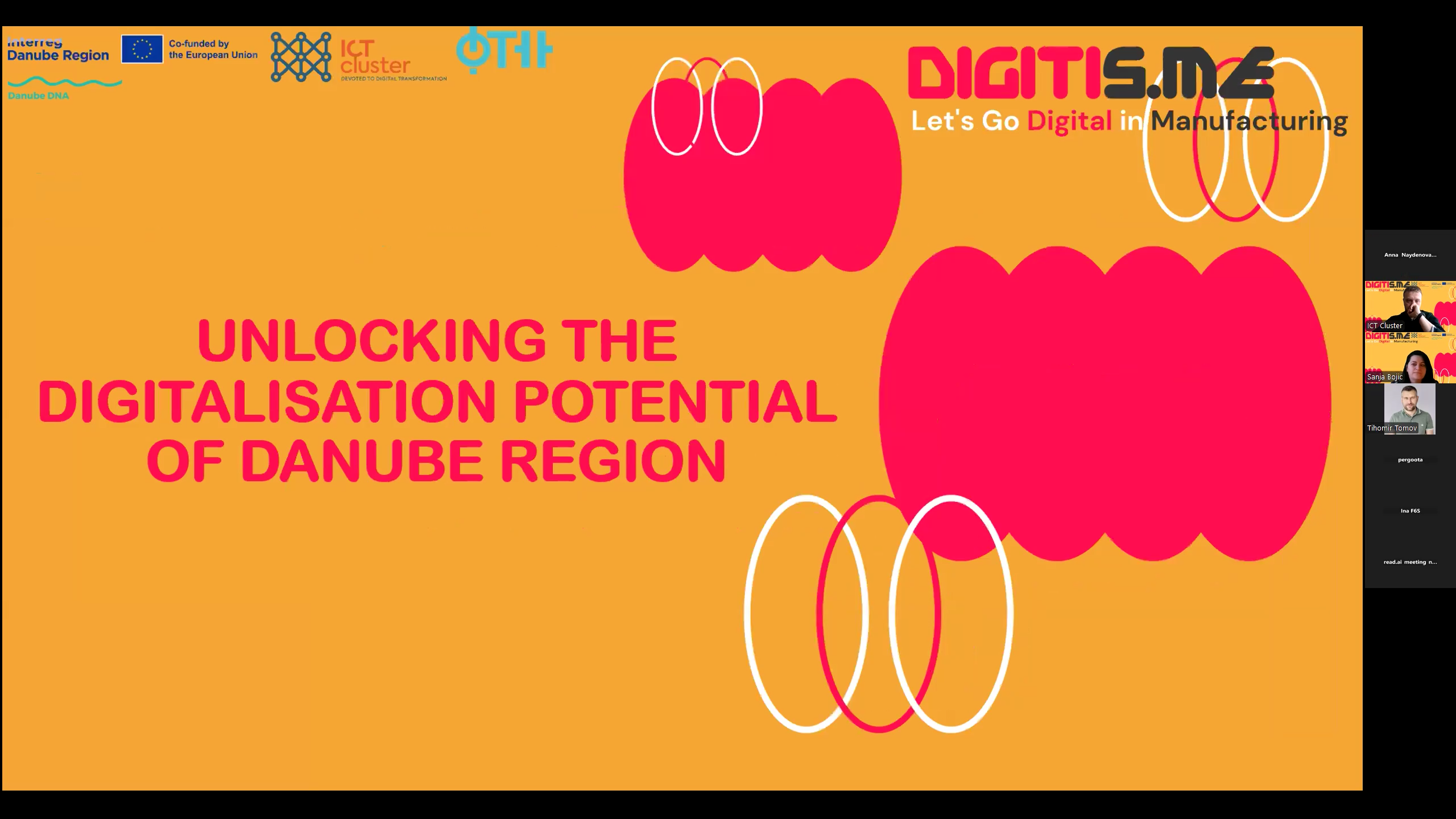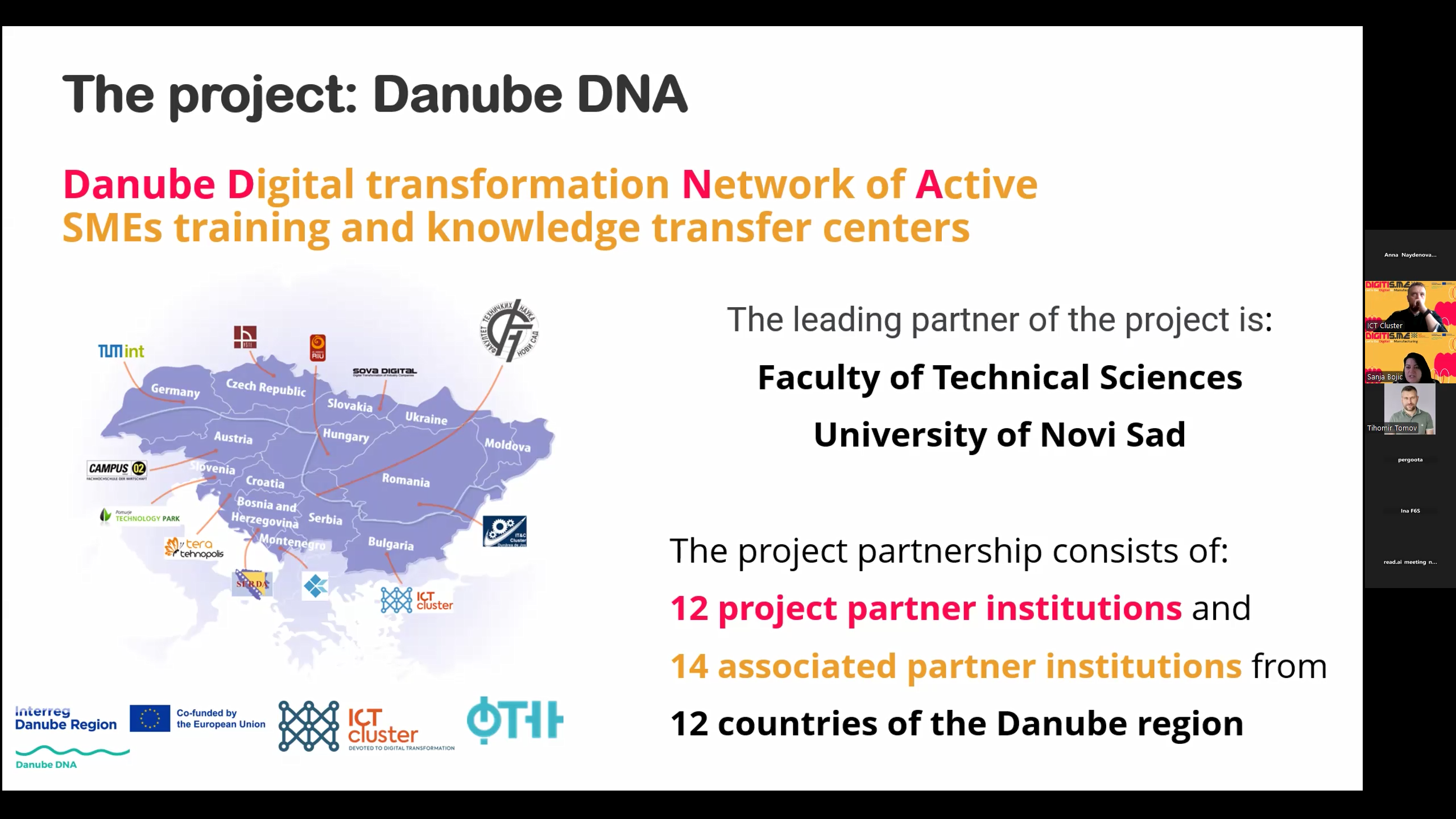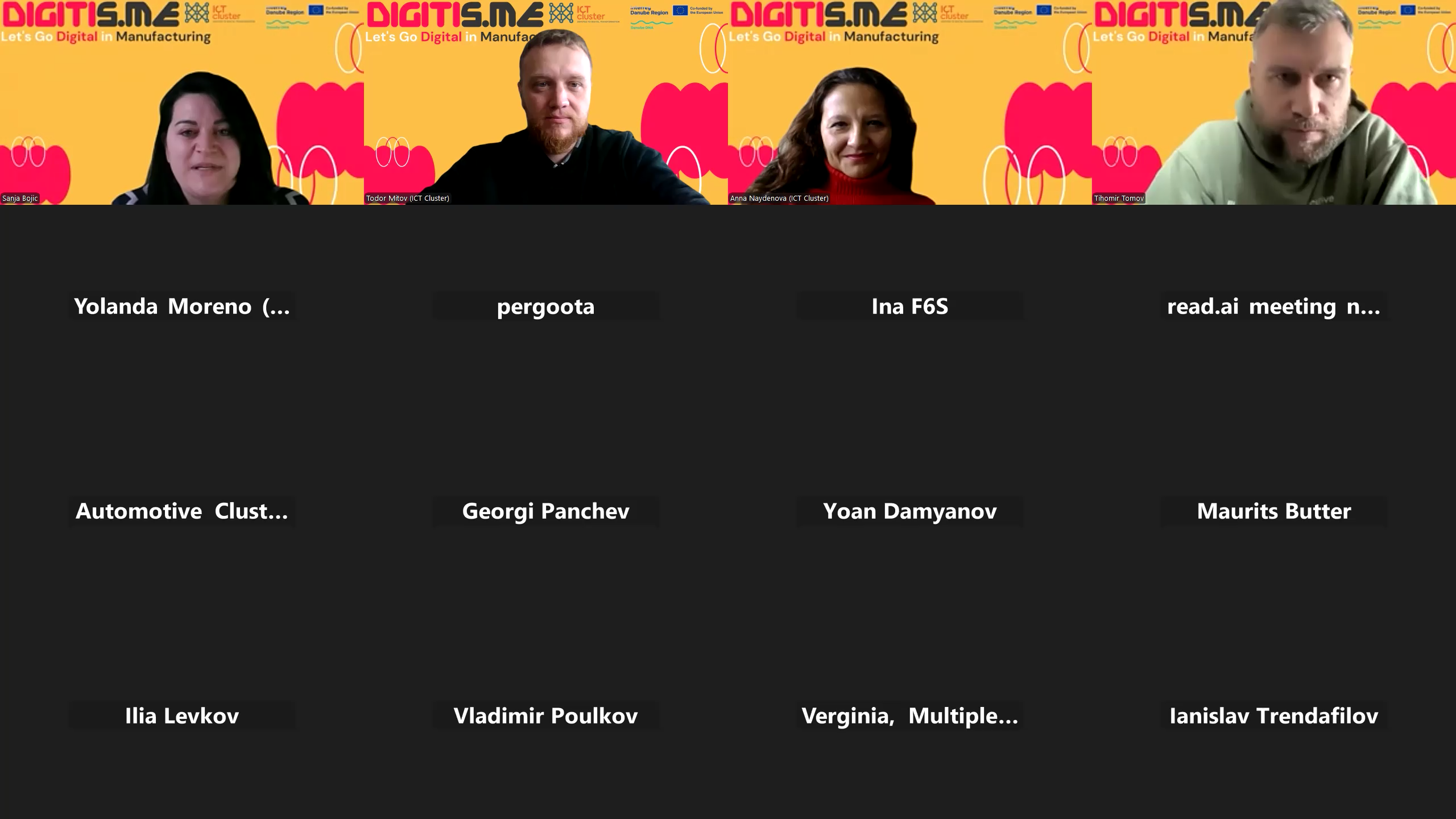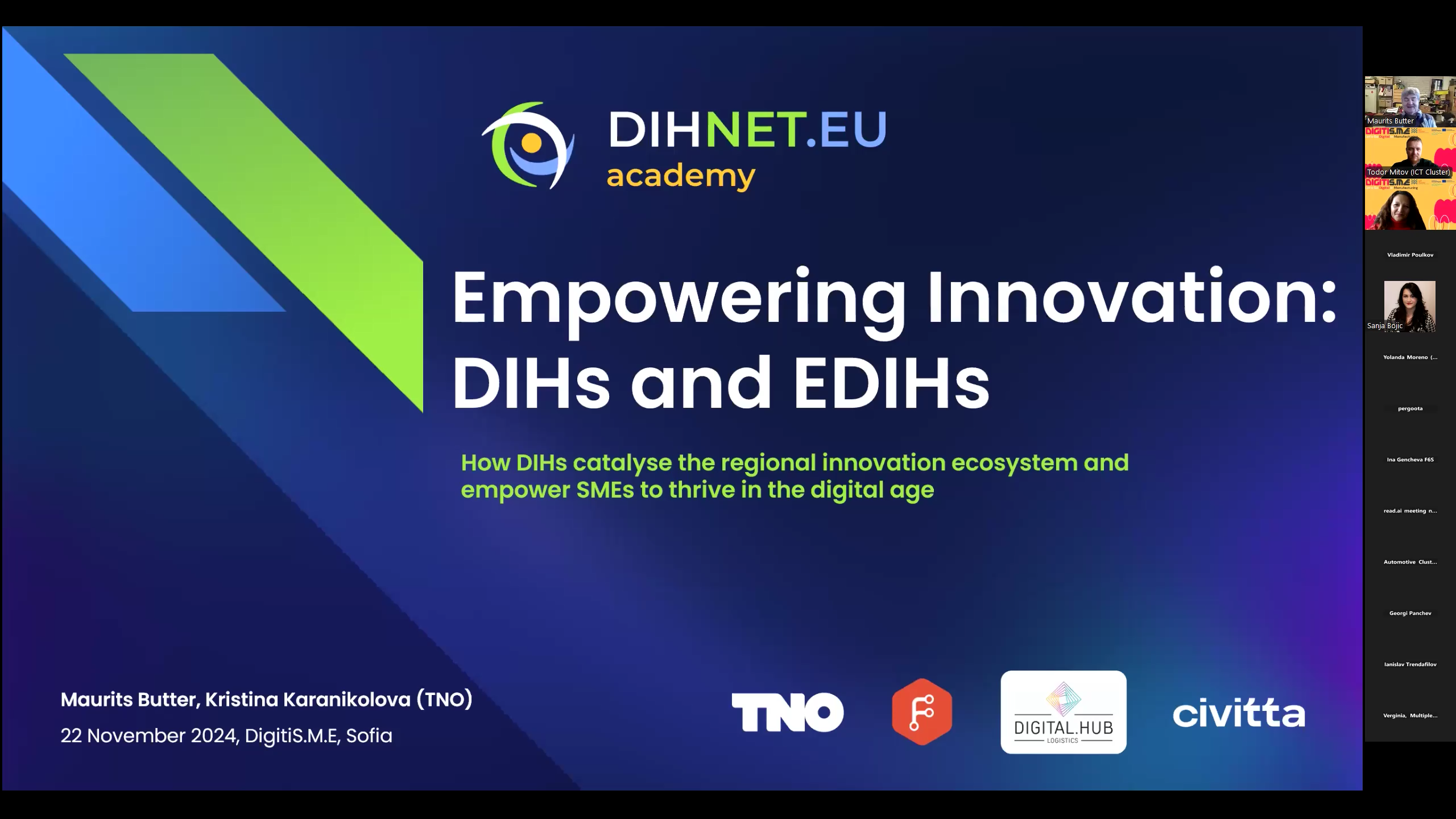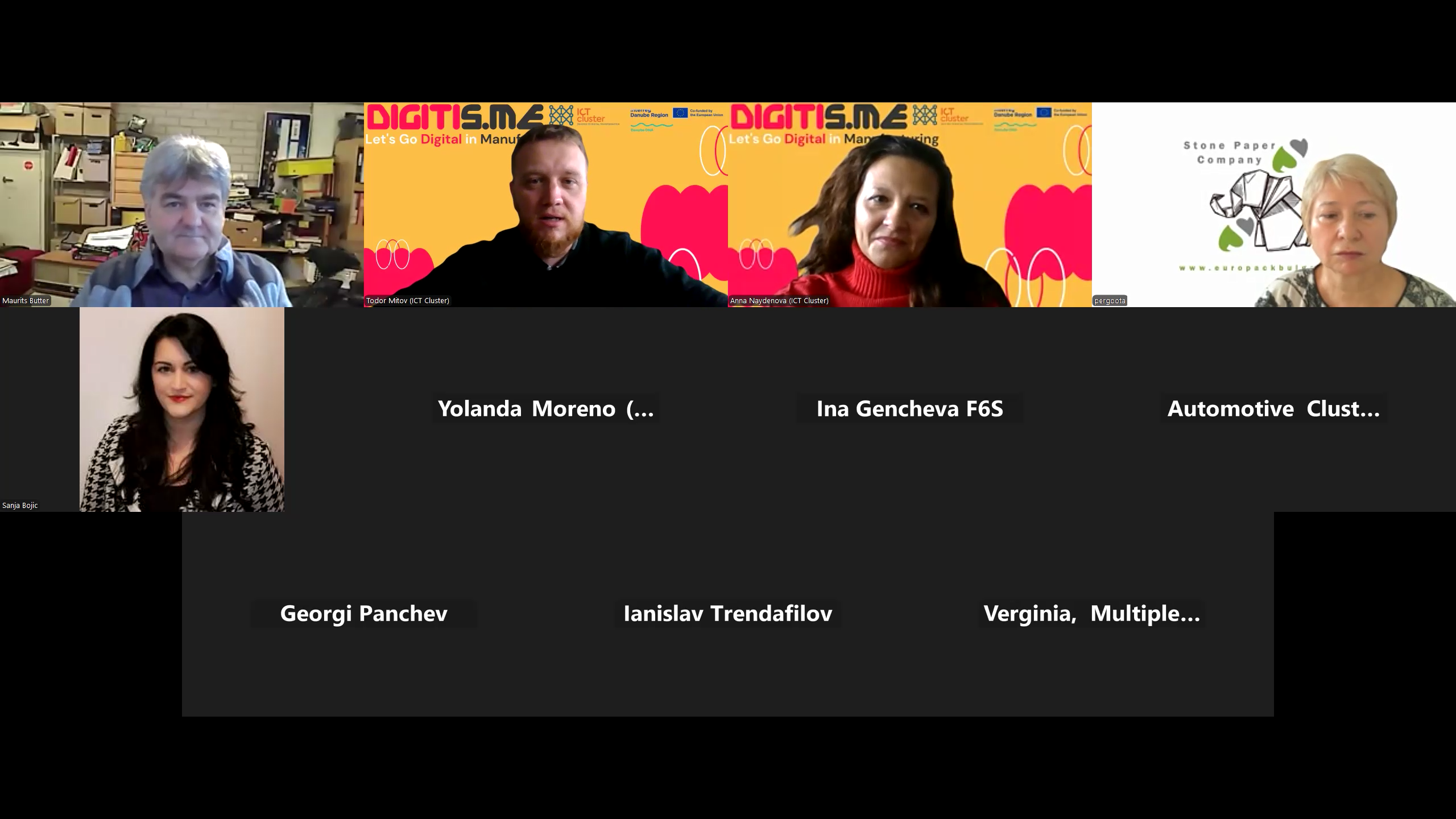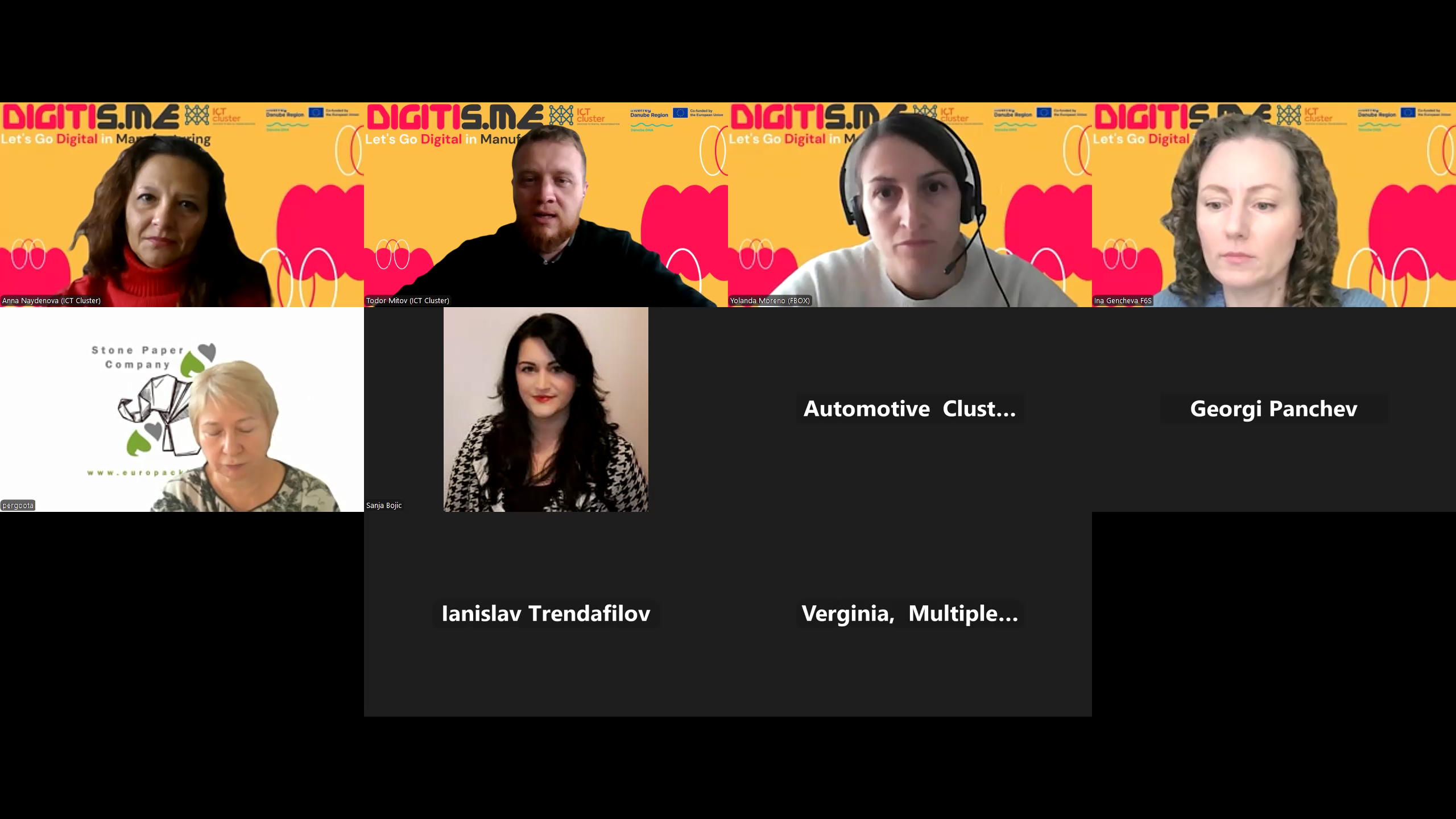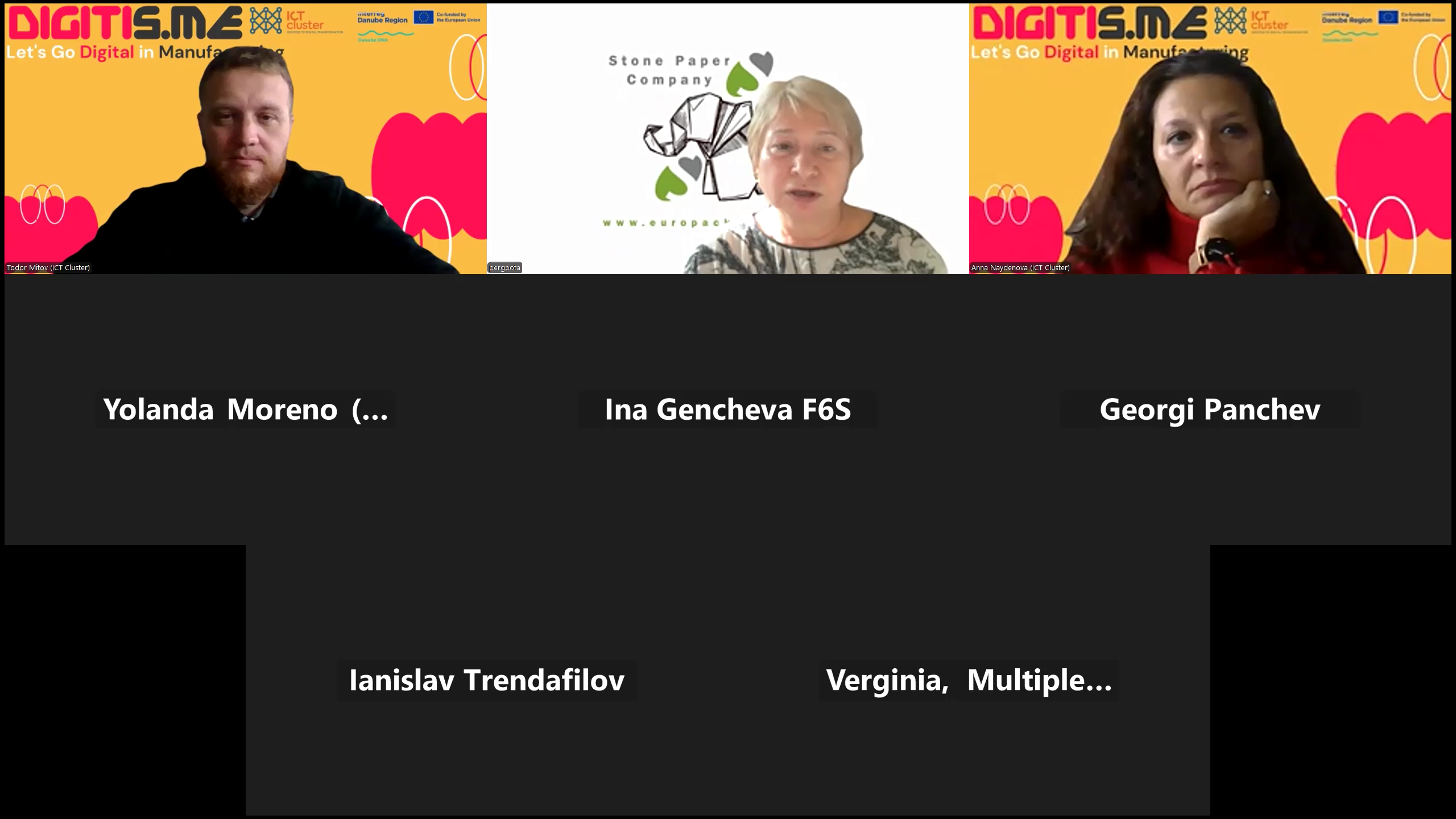Key Takeaways from the DIGITIS.ME Webinar - November 22, 2024
11/22/2024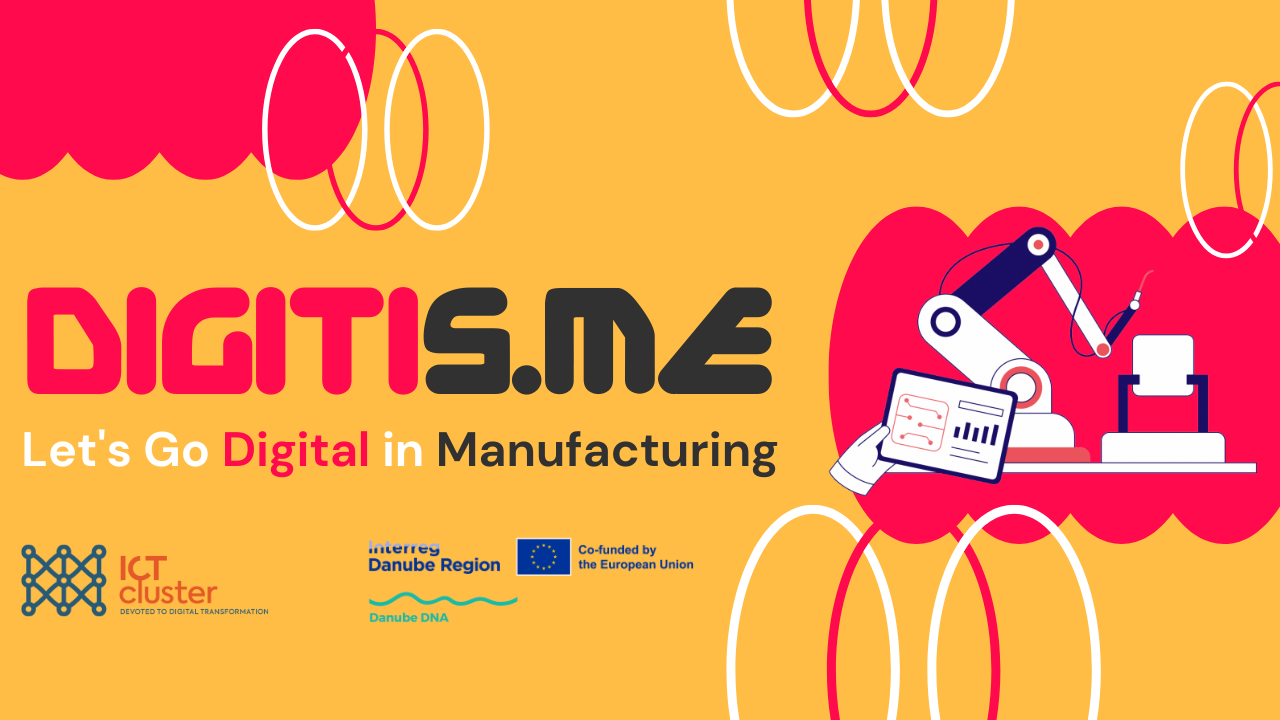
The DIGITIS.ME webinar on November 22, 2024, brought together experts and practitioners to explore the transformative impact of digitalization on small and medium-sized enterprises (SMEs), with a focus on manufacturing. As part of the Danube DNA project, the event emphasized cross-border collaboration and innovation to address regional challenges and drive digital transformation.
Key highlights included insights into the digital transformation challenges in the Danube region, such as infrastructure gaps and workforce shortages, as well as actionable strategies for improving competitiveness through Industrial Internet of Things (IIoT), Artificial Intelligence (AI), and cloud computing.
Discussions delved into the role of European Digital Innovation Hubs (DIHs) as enablers of regional collaboration, while practical funding solutions, such as cascade funding and open calls, were presented to accelerate innovation.
Speakers also emphasized emerging technologies like Open Radio Access Networks (Open RAN), critical for smart cities and sustainable urban development. Success stories showcased how SMEs can effectively leverage these opportunities for growth.
These insights underscore the importance of equipping SMEs with the tools, knowledge, and networks necessary to thrive in the digital era.
Here are the key takeaways from the session:
- Digital Transformation for SMEs: The webinar underscored the critical role of digital transformation in enabling small and medium-sized enterprises (SMEs) to stay competitive and enhance operational efficiency.
- Challenges in the Danube Region: Sanja Bojic, Project Manager for the Danube DNA project (funded by the Danube Interreg 2021 -2027 program), highlighted challenges facing countries in the Danube region, such as gaps in digital infrastructure and a shortage of skilled workers. The region also exhibits varying industry focuses, as revealed through an analysis of RIS3 strategies of the Danube countries.
- Digital Transformation in Manufacturing: Tihomir Tomov outlined two key types of digital transformation in manufacturing: enhancing manufacturing processes and optimizing business operations for greater efficiency and competitiveness.
- Key Technologies Driving Digitalization: The webinar spotlighted several critical technologies accelerating digitalization in manufacturing, including the Industrial Internet of Things (IIoT), Artificial Intelligence (AI), machine learning, and cloud computing.
- Open Radio Access Networks (Open RAN): Prof. Vladimir Poulkov introduced the concept of Open RAN, explaining its role in enabling vendor-independent, flexible network architectures for 5G and future 6G networks. He also emphasized its importance in shaping smart city infrastructure, focusing on user-centric designs and the integration of diverse wireless technologies.
- European Digital Innovation Hubs (DIHs): Maurits Butter discussed the pivotal role of European Digital Innovation Hubs in fostering regional collaboration and driving digital transformation. These hubs are essential for supporting innovation and addressing the unique digital needs of local communities.
- InnovationAmp for SMEs in Bulgaria: Anna Naydenova announced that InnovationAmp, an eDIH in the South-Eastern region of Bulgaria, will begin operations next month. The hub aims to support the local SME ecosystem in its digital transformation journey.
- Cascade Funding for Innovation: Yolanda Moreno from FundingBox highlighted the significance of cascade funding in supporting innovation-driven SMEs. She presented several funding opportunities to foster innovation and sustainable development.
- Open Calls for SMEs: Ina Gencheva provided an overview of open calls and funding opportunities available to SMEs, managed by F6S, designed to promote innovation and development.
- Success Stories with Cascade Funding: Anelia Pergot inspired the audience by sharing a success story about how SMEs can effectively leverage cascade funding to drive innovation and growth.
The ICT Cluster extends its gratitude to all the outstanding speakers for their valuable contributions.
If you missed the webinar, you can watch the recording down below.
